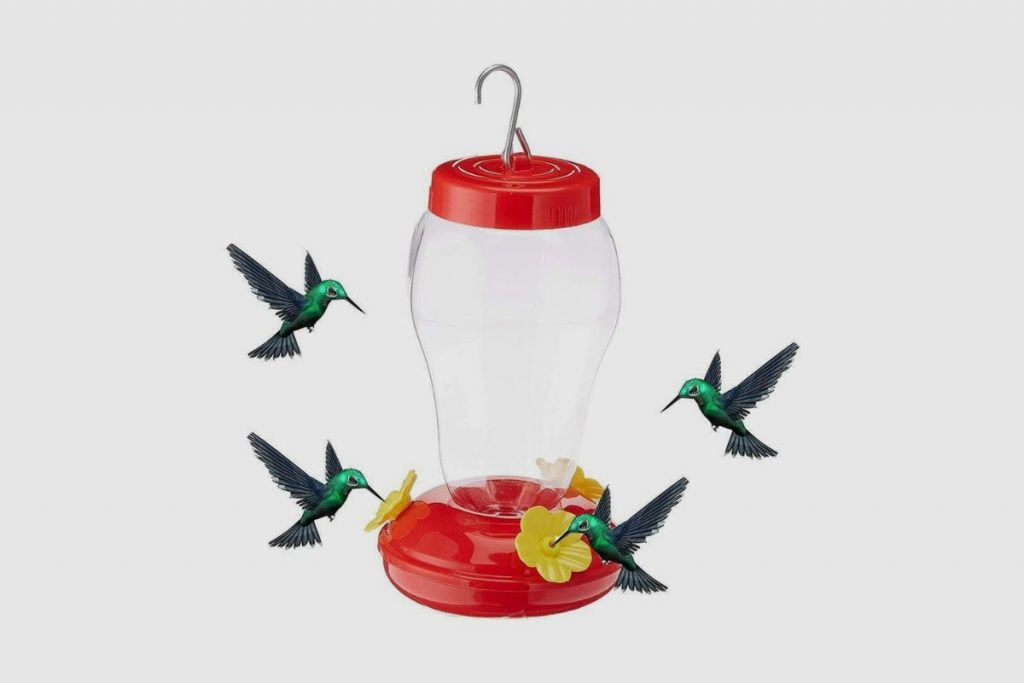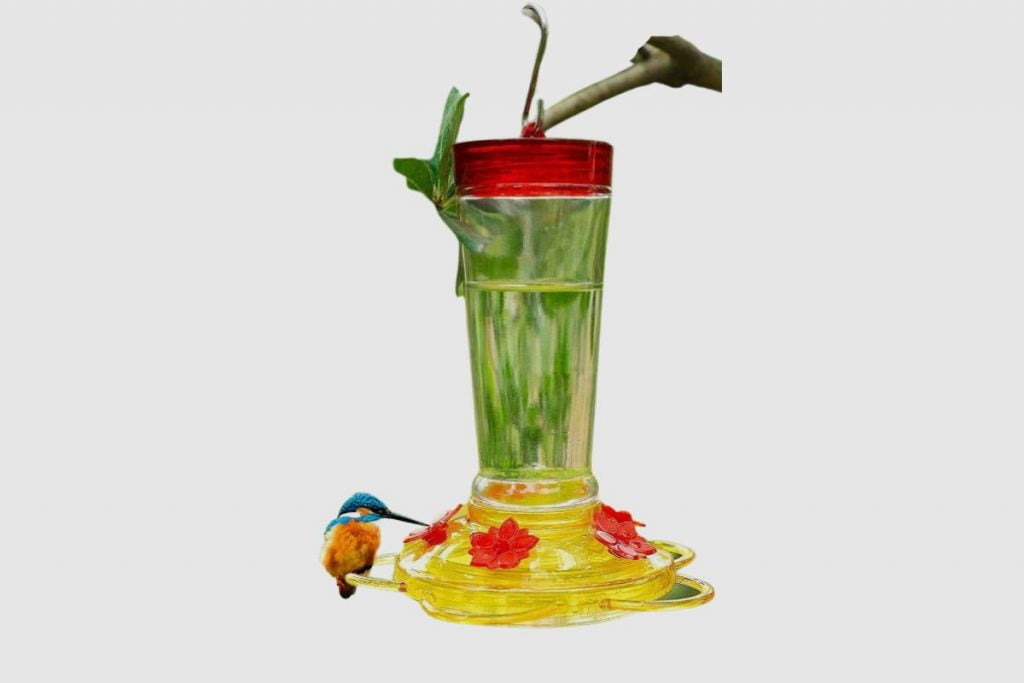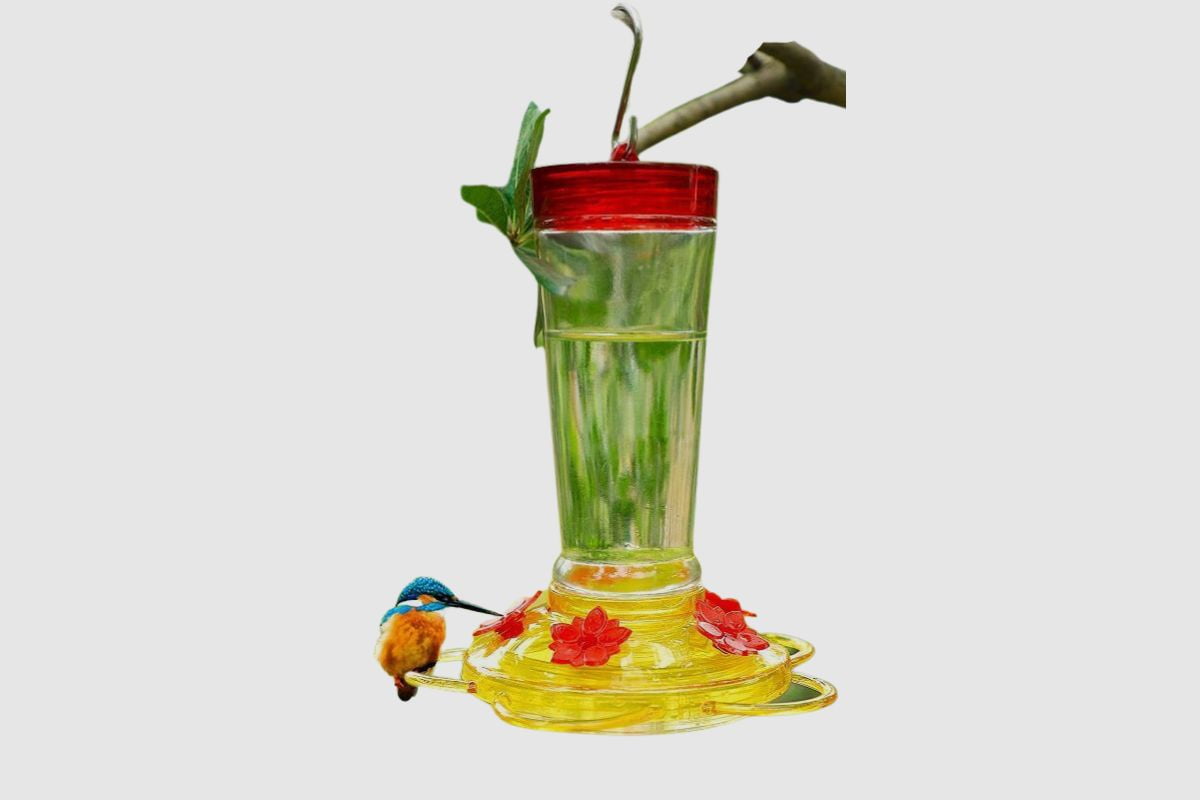Hummingbirds are beautiful birds that many people enjoy watching flit from flower to flower in their gardens. If you want to give your feathered friends a helping hand, putting out a hummingbird feeder can be a great way to do so.
However, if your bird feeder is leaking, it can not only be messy, but it can also discourage hummingbirds from feeding. In this blog post, we’ll explore why your hummingbird feeder might be leaking and how to fix the problem.
Related Posts:
How To Stop A Hummingbird Feeder From Leaking.
Why Is My Hummingbird Feeder Leaking From The Flowers?

What Causes a Hummingbird Feeder to Leak?
The most common cause of a hummingbird feeder leaking is simply due to poor construction or design flaws in the feeder. Because hummingbirds need access to sugar water, the feeders are designed with small openings for them to drink from and sometimes these openings are too large or not sealed properly, which can lead to leaks.
There are also cases where the sealant used between two pieces of the feeder has worn down over time which can cause leaks as well.
Also, if the feeder has been exposed to extreme temperatures or direct sunlight for long periods of time, this can also cause the material of the feeder to weaken and leak.
How To Identify Where The Leaking Is Coming From?
Identifying where a leak is coming from on a hummingbird feeder can be tricky because most hummingbird feeders have multiple openings and parts that could potentially be causing the leak. To help narrow down where the leak might be coming from, first check all of the openings on the feeder for any gaps or cracks that could be allowing liquid or air in or out of the feeder.
If you don’t see any obvious cracks around these areas, then you can try testing each component one by one by filling up the feeder with water and then examining each piece as it empties out. This should allow you to identify which component is leaking so you can address it properly.

How To Stop A Hummingbird Feeder From Leaking?
Once you’ve identified where the leak is coming from on your hummingbird feeder, there are several steps you can take to stop it from leaking further:
- If there are any large cracks or gaps in the parts of your hummingbird feeder, try using some silicone sealant or waterproof tape around these areas to patch up any holes and prevent further leakage.
- If parts of your hummer bird feeder have worn away due to age or exposure to extreme temperatures, try replacing those parts with new ones so that they fit better together and create a better seal against liquid leakage.
- Make sure all parts of your hummingbird feeder are firmly fitted together before putting nectar inside so that air pressure doesn’t create gaps between components allowing liquid out of the container.
Conclusion
Leaks in hummingbird feeders can be caused by poorly designed or constructed containers as well as age-related wear and tear over time. Identifying where these leaks come from requires careful inspection and testing before taking steps towards fixing them, such as applying waterproof tape/sealant around open areas or replacing old parts with new ones. Taking these steps should help ensure that your hummingbird feeders remain leak-free so that more birds can enjoy their sweet treats!
Related Posts:
Hummingbird Feeders Comprehensive Guide.
15 Best Hummingbird Feeders.
Image Gallery – Why Is My Hummingbird Feeder Leaking?



References: Hummingbird, Bird Feeder.
